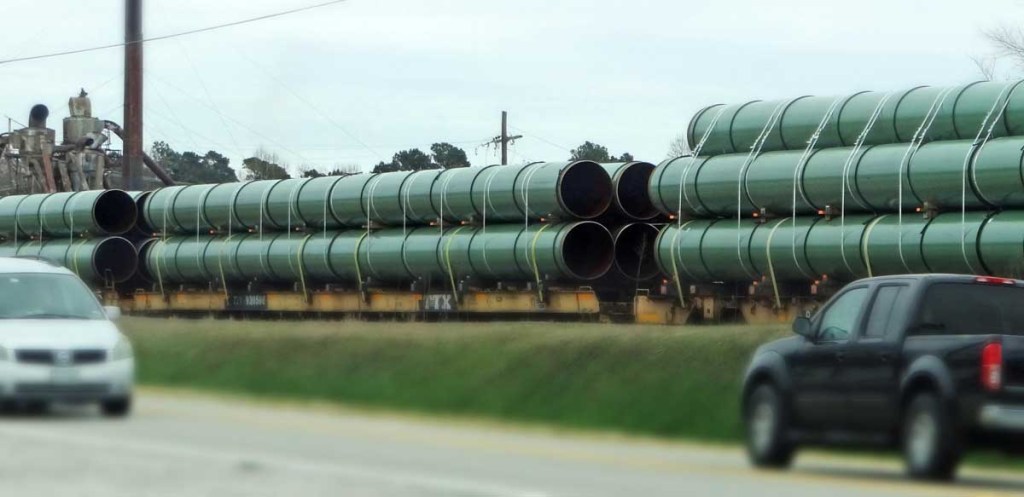New pipeline rules limit eminent domain
Published 4:15 pm Friday, July 21, 2017

- MorgueFile
ATLANTA – A new law that makes it tougher for companies to build or expand petroleum pipelines in Georgia has replaced an outright ban that state legislators passed last year.
The measure, which passed after a compromise was struck on the last day of this year’s legislative session, sets new limitations on the use of eminent domain and requires more information from pipeline companies, such as “evidence of financial responsibility.”
All parties – including affected property owners – can also now appeal the state’s decision. Before, only the company could appeal.
“It’s not just a slam dunk,” said Rep. Don Parsons, R-Marietta, who chairs the House Energy, Utilities and Telecommunications Committee and who sponsored the final version of the bill. “There is a process that has to be gone through.”
The legislation does not apply to natural gas pipelines, which fall under federal authority. The tighter requirements come one year after the Legislature temporarily banned new petroleum pipelines so state lawmakers could study the issue.
That moratorium, which expired July 1, was in response to the controversial Palmetto Pipeline that was proposed along the Georgia coast. The company sought to use the power of eminent domain to acquire some of the property needed.
That pipeline would have carried diesel, gasoline and ethanol through Florida, Georgia and South Carolina, which put a three-year ban on pipelines.
In response to the temporary ban, Houston-based Kinder Morgan Inc. suspended work on the $1 billion project. Spokeswoman Melissa Ruiz said this week that the company does not plan to revive that particular project, but it does not object to the new law.
The proposed pipeline stirred environmental concerns and an outcry from property owners over the use of eminent domain, which allows private property to be seized for public use. The now-expired ban barred the exercise of those powers.
Neill Herring, a lobbyist for the Georgia chapter of the Sierra Club and other environmental groups, said the new measure is “a significant strengthening of the underlying law” that creates several new hurdles for pipeline projects that did not previously exist.
Herring said environmentalists pushed unsuccessfully for further provisions that would make companies financially responsible in the event of a catastrophic failure and that would completely eliminate eminent domain powers for pipelines.
“They have enough capacity. There’s just no need for anymore petroleum pipelines,” he said. “There’s no market need for anymore pipelines, so leaving this power on the table is just a temptation to speculators.”
Rep. Bill Hitchens, R-Rincon, who chaired a study commission on petroleum pipelines, told the Savannah Morning News after the session that he would have preferred to see more limitations on the use of eminent domain.
“This may be one bite of the apple,” he told that outlet, indicating that the matter may not be settled. Hitchens could not be reached for comment this week. Nearly 40 miles of the Palmetto Pipeline would have gone through Effingham County, where he lives.
Parsons said he believes his bill balances environmental safeguards and private property rights with future energy needs.
“I’m not a big fan of the power of eminent domain,” Parsons said. “Sometimes you have to have it to be able to proceed and have progress.”
Parsons’ measure at least makes it much more difficult for a pipeline company to “come through and use the power of eminent domain,” he said.
There’s enough fuel available to handle current demand in Atlanta and Georgia, said Hunter Hopkins, a lobbyist and executive director of the Georgia Petroleum Council. But that may not always be true.
“In 20 years – 10 years, even – the way Atlanta’s growing, who knows. There might be a need for gasoline, but you’re also seeing more and more electric cars on the road,” Hopkins said. “It’s hard to tell what the future will hold and if there will need to be any future expansion.”
Hopkins said the industry sees the new law as fair, since it adds new protections for the environment and for landowners while still keeping the state open for future projects if they are needed.
No new applications can be approved while the state Environmental Protection Division and the Department of Transportation write new rules for the law, which they have until next summer to do.
Jill Nolin covers the Georgia Statehouse for CNHI’s newspapers and websites. Reach her at jnolin@cnhi.com.



